Challenges of the Future Posed While Celebrating Progress
Over 140 academic faculty from across the U.S. gathered to discuss the challenges of engaging the next generation in promoting and advancing palliative care practice this past Friday and Saturday, Sept. 30 and Oct. 1, as the CSU Shiley Institute for Palliative Care convened its first national symposium, Engaging the Next Generation. Coming from across the country … from Massachusetts to California, higher education faculty, researchers, and clinicians were treated to riveting stories and amusing anecdotes from nationally renowned experts, and to inspiring opportunities for collaboration with their colleagues.
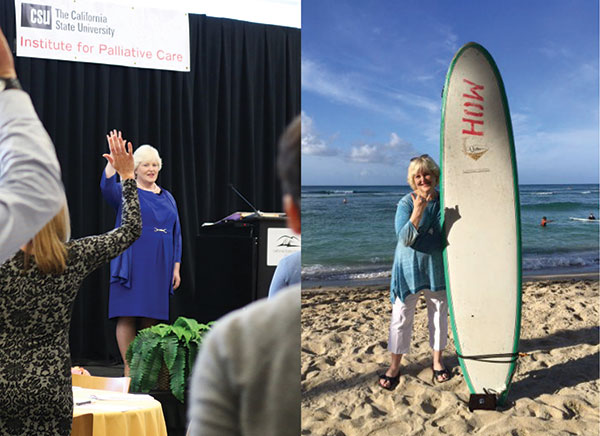
Keynotes Shared and Informed
Amy Berman of the John A. Hartford Foundation told her personal story of navigating as a patient with aggressive breast cancer, and her choice for care that was outside of the norm for many of her providers. From tears and shock to strength and bucket-list joy, Berman shared her experience of living fully each day, and clearly conveyed a sense of gratitude and positivity for being a soon-to-be 6 year survivor of an illness where only 11% live for 5 years. Tracing her disease trajectory, the challenges she faced with her providers and caretakers, and the choices she selected, her story was testimony for the power of palliative care to provide an excellent quality of life and support for an individual to live well and fully.
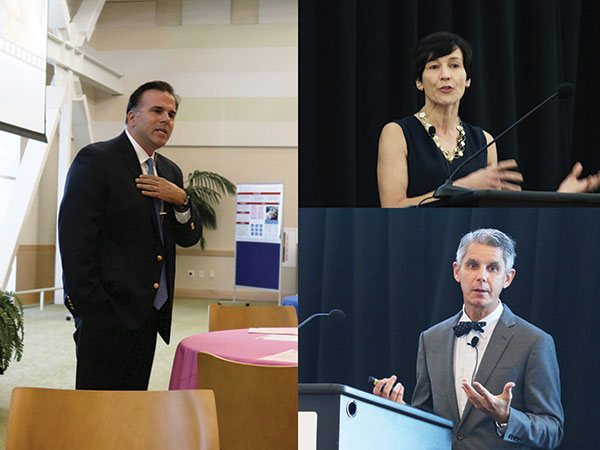
From our keynote speakers’ stories, such as Dr. David Casarett’s humorous account of his online date’s reaction to his research work, to Dr. Christine Ritchie’s touching story of applying her evidence-based research to the suffering of her own parents, to Dr. Angelo Volandes’ process of finding the use of videos to help providers have advance care planning discussions with patients, the Symposium was filled with poignancy as well as data on palliative care’s progress in practice, and intriguing ideas for attendees to adopt in their teaching or explore in their research. Hugs, laughter, and exchange of thoughts and ideas abounded throughout the ballrooms, breakout rooms and social gatherings.
Palliative Care Approaches for Now and the Future
Pointing to challenges ahead for palliative care, resounding themes surfaced from all the speakers that there are not enough formally trained providers, whether physicians, advanced practice providers, or other health professionals, to carry out this work in a growingly aged, chronically ill population. The message was issued time and time again on the critical role higher education faculty play in addressing the shortage of adequately trained people in this form of support. Dr. David Casarett advocated a model to inform and educate the public, as well as all levels of helping professions, which was followed by public health professionals over the past several decades to improve cardiac wellbeing in the country; and even to consider the innovative approach modeled by Southwest Airlines in the ‘70’s, but instead of “air flight for everyone”, we should pursue “palliative care for everyone.”
Tools and Time to Practice
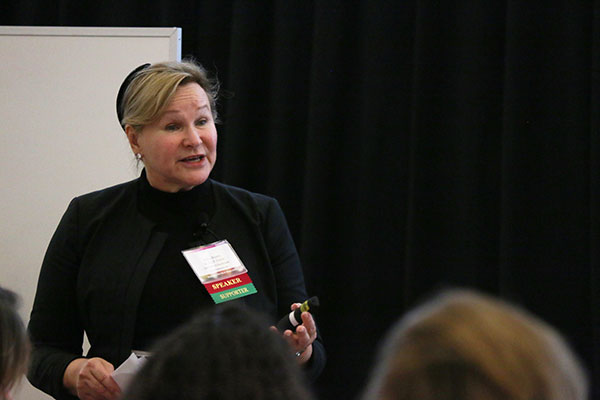
Collaboration in groups to learn and practice advance care planning conversations was the topic of the concluding afternoon, accomplishing a remarkable feat of retaining almost the entire group of attendees throughout the entire last day. A master trainer of healthcare communications, Monica Broome, MD, conducted a highly interactive session so attendees could learn and replicate effective exercises for classroom use to conquer barriers preventing advance care planning conversations. Her session included ways to recognize when statements people make may be signaling openness to having these challenging conversations, and she valuably provided a variety of techniques and phrases to respond to emotions, facilitated participants in practicing communication techniques, to ultimately promote the learner’s confidence in successfully conducting advance care planning conversations with others.
Seed Grants Amplify Innovation
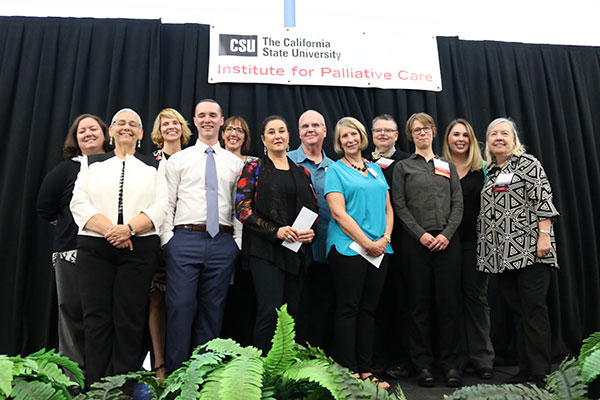
Hard work and innovative future plans paid off for five attendees, who were awarded seed grants of $2,000 each. Through the generous support of the Gary and Mary West Foundation, five faculty received seed grant funding to focus on projects to grow and improve palliative care education and research. The complete story of the recipients and their proposals can be seen in full in our upcoming blog post!
Symposium 2017 Plans are Under Way
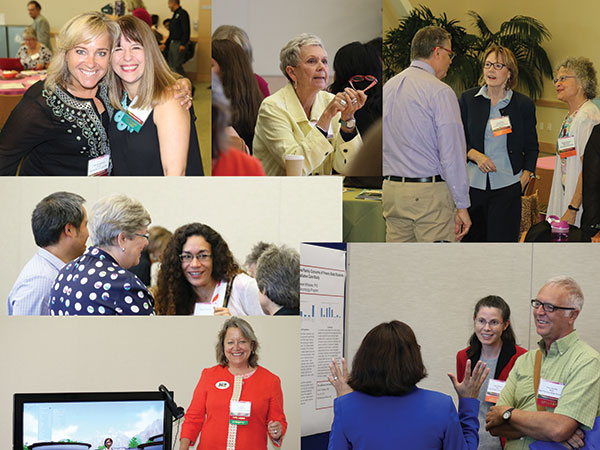
The First National Symposium on Academic Palliative Care Education and Research was described by a number of participants as the “best conference I have attended, EVER” and received a standing ovation at the conclusion of the conference during CSU Shiley Institute for Palliative Care Executive Director Helen McNeal’s remarks. Plans are commencing for the 2017 Symposium, which, as stated by McNeal, “Will be even better than this year’s event!”




